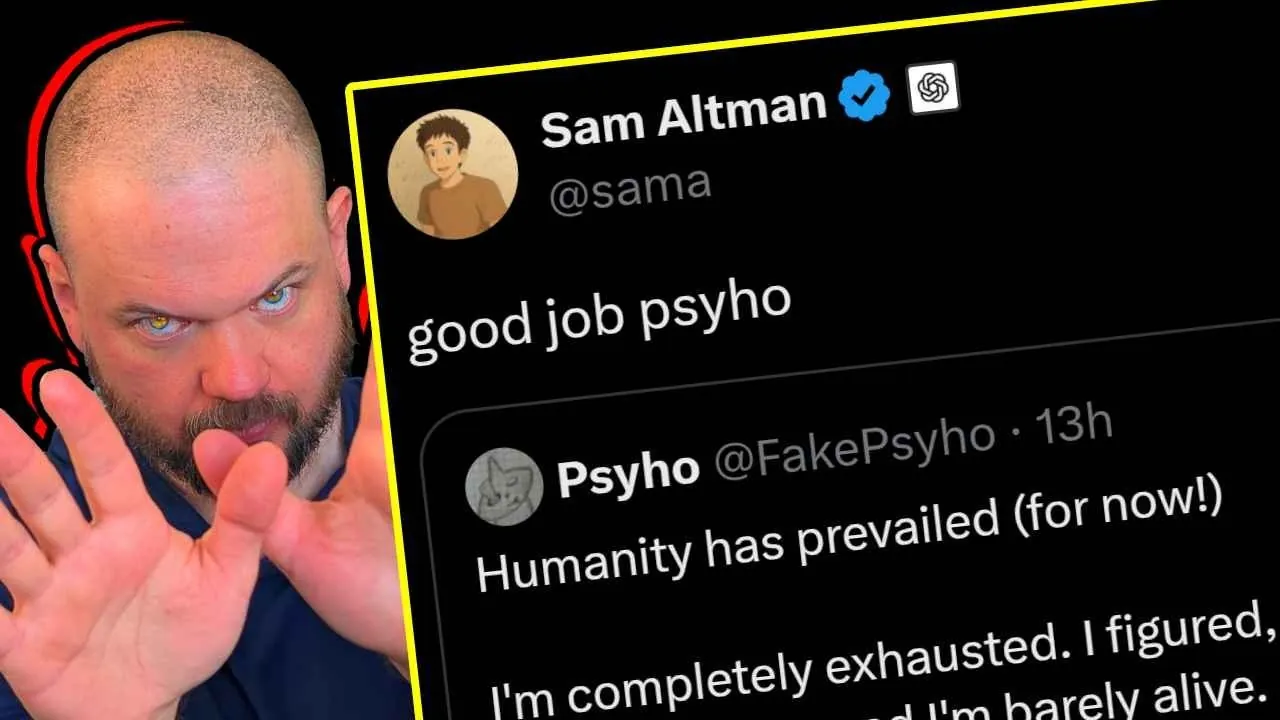A developer's new AI-powered workflow

PLUS: A human coder beats OpenAI, top models fail a math test, and AI listens for lonely frogs
It's a good evening AI Rockstars! (I made some changes to the automation and it didn't work... so you get a late edition tonight!)
A single developer just built a complete application in only four days by directing an AI, despite not knowing the programming languages involved. His workflow highlights a new approach focused on "structured wishing" rather than manual coding.
This method of building suggests a major shift in the developer's role, from a hands-on coder to more of a project architect. But as AI handles the syntax, what new skills become essential for guiding these systems effectively?
In today’s Lean AI recap:
- A solo dev’s new AI-first coding workflow
- The human coder who out-performed OpenAI's model
- Top LLMs stumble on an international math test
- How AI is helping conservationists find lonely frogs
The Sandcastle Doctrine
The Report: A solo developer built a real product in just four days using AI, arguing in a recent post that we're in a new era where the most important skill is becoming "structured wishing."
Broaden your horizons:
- His workflow was an accidental discovery, coalescing into a four-document system to manage the AI's context and track progress.
- The process created a strange "time dilation" effect, where he spent only 90 minutes on focused tasks while the AI coded in the background for hours at a time.
- The final result is a working application called Protocollie, which he built using languages he didn’t know and without directly touching most of the code.
If you remember one thing: We are entering a phase where established best practices are giving way to constant, rapid experimentation. Your value is shifting from knowing a specific technical syntax to your ability to clearly articulate a desired outcome to an AI collaborator.
Humanity's (Last?) Stand
The Report: In a landmark human-vs-machine showdown, former OpenAI employee Przemysław Dębiak defeated a custom OpenAI model to win the 2025 AtCoder World Finals. His victory came after a grueling 10-hour coding marathon focused on a complex optimization puzzle.
Broaden your horizons:
- Dębiak clinched the win by a narrow margin, scoring 1.81 trillion points while the AI model finished just 9.5% behind with 1.65 trillion.
- The backstory adds a compelling layer, as Dębiak is a former OpenAI employee who beat his old company’s AI, which still out-coded the other 10 human finalists.
- This event highlights how quickly AI models are advancing, with OpenAI’s coder reportedly rapidly improving from a global rank of 10,000 to the top 50 in just one year.
If you remember one thing: This victory is a powerful reminder that human ingenuity and persistence can still hold an edge in scenarios that demand creative, non-linear solutions. The future of technical work will likely involve AI augmenting human skill, not simply replacing it.
AI Flunks The Math Test
The Report: A new benchmark from MathArena.ai shows even top LLMs like Gemini 2.5 Pro failed to earn a medal on the 2025 International Math Olympiad. However, a tantalizing rumor suggests an unreleased OpenAI model secretly achieved gold.
Broaden your horizons:
- The best-performing public model, Gemini 2.5 Pro, scored 13 out of 42 points, falling short of the 19 points needed for a bronze medal.
- In a dramatic twist, an unreleased OpenAI model reportedly achieved a gold medal, with IMO organizers confirming the validity of the final proofs.
- The rigorous evaluation used a best-of-32 selection process, where an LLM judge selected the strongest response from 32 attempts for each problem.
If you remember one thing: The gap between public models and unreleased, frontier systems appears to be widening for complex reasoning tasks. These demanding benchmarks are critical for measuring real progress beyond everyday chatbot capabilities.
AI Listens for Lonely Frogs
The Report: Conservationists are using a custom AI to sift through thousands of hours of audio to detect the faint mating calls of the threatened California red-legged frog. The model successfully confirmed the first breeding in a new habitat, a major milestone for the species' comeback.
Broaden your horizons:
- The main challenge was analyzing thousands of hours of audio recordings from the relocation sites, a task considered infeasible for human researchers to perform manually.
- The team's machine learning model, similar to the popular birding app Merlin, was trained to specifically identify the calls of the red-legged frog and its invasive competitor, the American Bullfrog.
- This effort was critical because the frog was listed as threatened in 1996 and had vanished from a 260-mile stretch of its historic range in Southern California.
If you remember one thing: This project shows how specialized AI models can solve unique, data-heavy problems far beyond general-purpose applications. It offers a powerful blueprint for using targeted AI to accelerate scientific research and conservation efforts in the field.
The Shortlist
Meta seeks to raise a staggering $29B from private capital firms to fund its massive AI data center build-out, signaling the enormous infrastructure costs of competing in the AI race.
Reddit races to protect its forums from AI-generated content, aiming to preserve the value of its human-generated conversations, which it licenses to AI companies.
Germany asked Apple and Google to remove the Chinese AI app DeepSeek from its app stores, citing concerns that the company illegally transfers user data to China.
Lyft integrated Anthropic's Claude into its customer care platform, reducing resolution times by 87% and showcasing how frontier models are being deployed to enhance core business operations.